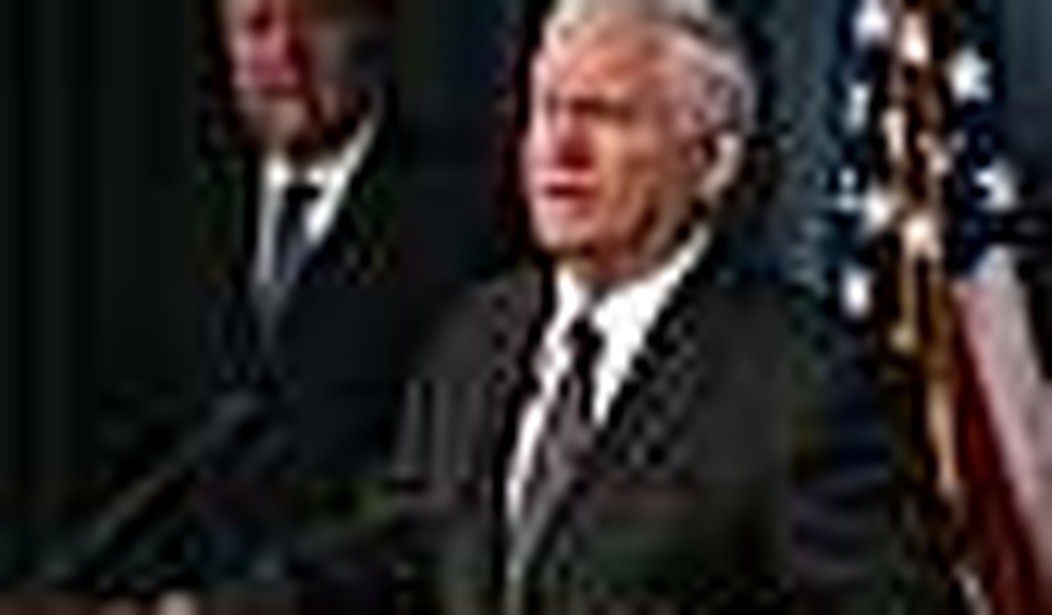We used to think the U.S. was a rich country, but our level of debt indicates otherwise. We need to rein in spending and, more importantly, change our perceptions of who our enemies really are and how we should defend ourselves against them. And there are ways to save money on defense while still improving it.
The key is in knowing who your enemies are and understanding what they might do. (This is much more of a political issue than a defense issue.) The French learned the hard way with the Maginot Line. It cost a fortune and did nothing. The U.S. has started to recognize that major changes in defense spending are required.
On April 7, the Wall Street Journal reported (subscription required) on Defense Secretary Robert Gates’ realignment of Pentagon strategy in fighting unconventional wars such as the one in Afghanistan as opposed to a head-on battle with Russia or China. This is a tacit admission that China and Russia are not the enemies they once were. And, in truth, they haven’t been for decades. That is not to say there is no commercial conflict or maneuvering for power, but fundamentally neither power wants us dead like our terrorist enemies do. They certainly are not our friends even if they should be (after all we are great customers). However, given the nuclear arsenal possessed by each country, it is probable that there will not be a major war with conventional armies clashing. It would be impossible to win and unnecessary — and we all know it.
One of the great accidents that benefited civilized humankind as a whole was the Chernobyl nuclear meltdown. It showed the potential devastation of a nuclear war to thinking men on all sides. In the case of Chernobyl, the entire civilized world came to the aid of the Soviets in order to keep this disaster to a minimum.
So Gates is right in shifting the strategy. Al-Qaeda did much more damage to the U.S. in the last two decades than all our other so-called enemies combined. There is already much controversy swirling around the decisions he has made in terms of what programs will be shut down, etc. But these changes do not go far enough. For example, this shift does not acknowledge the reality that large armies and occupations are effectively obsolete. While the Iraq and Afghanistan wars may have kept the U.S. safe since 9/11, they surely haven’t been cost effective in lives and money. Perhaps the nation-building will stick, but that is hardly a certainty. And an unspoken truth is that the U.S. would never invade a country that possessed nuclear weapons.
The estimate is that terrorists spent $5M on 9/11. Our response (and the rest of the world’s) has a price tag in the trillions. We cannot maintain such a lopsided ratio and effectively defend ourselves. Despite the military’s publicity to the contrary, these wars have been fought in a low-tech way. What do I mean by low-tech? We actually have U.S. troops patrolling back alleys by foot. That’s as low-tech as it gets. But all of that is a consequence of using troops to invade and occupy in the first place. Future retaliations or preemptive strikes should not use large armies. Elite squads such as the Navy Seals or Green Berets and ultra high-tech will be the name of the game. B2 bombers flying from safe bases in the U.S. will rain smart munitions on specific targets. It makes no sense to send an accountant who is also a reservist into a Baghdad alley with a backpack, rifle, and webcam.
And that brings me to the core of my argument. Our enemies have changed. They use completely different strategies and tactics than our old traditional adversaries. This means our approaches must change to accommodate these realities. Our old enemies need to wake up to this fact as well. No one will invade Russia, China, or the U.S. — end of story. There is no percentage in it. If China wants to own Intel for instance, all it needs to do is buy it on the open market. It would be much faster and cheaper than an invasion, plus the country gets to collect a nice dividend. So keeping a large army up and running serves no purpose against the real enemies of the U.S. (or Russia or China or India): the terrorist who wants to smuggle in a nuclear weapon.
Therefore, having bases in Europe, South Korea, and Japan are expensive and serve little purpose. Worse still, we are spending billions of dollars maintaining these bases to “defend” their hosts. True, they serve some logistical purpose and North Korea is in the hands of an unpredictable fellow who makes many threats. But if the host countries want our protection they should pay for it. Cost plus a 10% fixed profit. And if they do not want to pay, we should up and leave. Aircraft carriers make great forward bases if we need them to support a foray somewhere or other. But if we are not going to invade a country, having a huge base of operations in Japan or South Korea is extraneous.
These bases have become the Maginot Line of the 21st century. On April 7, the Wall Street Journal reported that the U.S. electric grid system was penetrated by the Russians and Chinese with worms and viruses. How much use would a base in Japan be to counteract this threat? Here is a case where a few million dollars spent on malware can destroy billions of dollars of electrical generation equipment and cause widespread social disruption. We need to spend our money to defend against these kinds of threats.
We cannot continue to spend in the ratio of nearly a million to one against our real enemies. It is a battle we will surely lose. We must change the way we fight wars and be honest about who our true enemies are in order to dramatically lower that ratio by at least a factor of 100 to 1000. Our allies need to stand on their own two feet. WWII has been over for six decades. Europe can survive without our airbases, soldiers, and spending. The South Koreans have the money to defend themselves from the North Koreans without our military.
We face a radically different set of enemies with a dramatically different set of weapons that can harm us. Unlike our previous enemies who just wanted to enslave us economically, our new foes want to kill as many of us as they can. The Defense Department must restructure and re-task to meet the new threat. Gates is not going far enough. Jettisoning our bases in foreign lands not only saves money and personnel, but heralds the beginning of a new era in U.S. defense. We cannot and should not be the world’s police force. The reality is we can’t afford it.









Join the conversation as a VIP Member